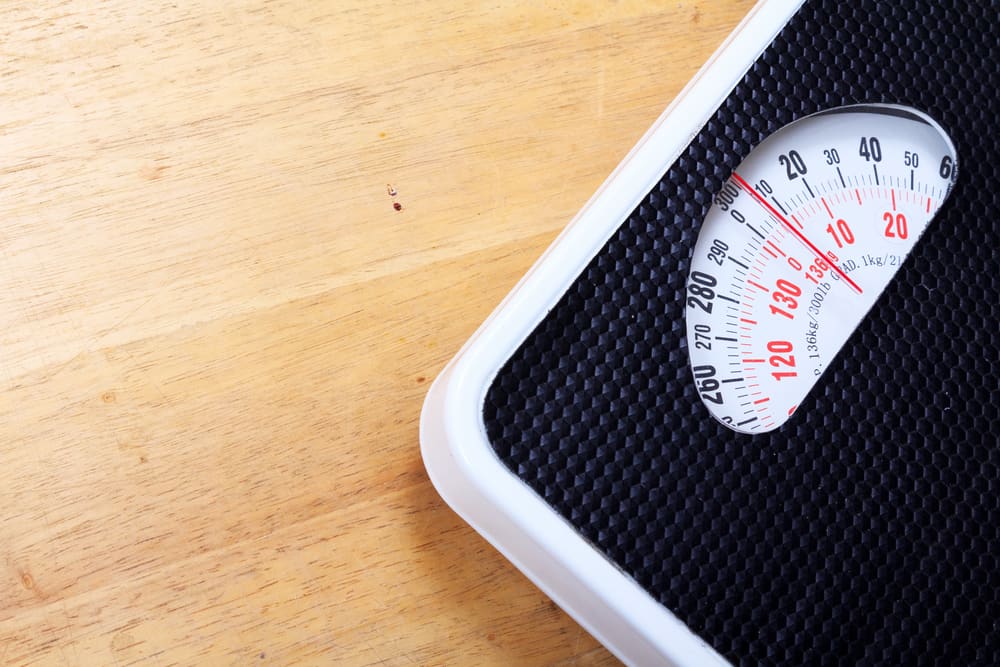How Often Should You #Weigh Yourself, and Should You Eat Dessert? #Diet Questions Answered
Keeping track of your weight is not just for #weight loss. Research from the National Weight Loss Registry has determined that almost all successful weight-loss maintainers have some kind of “5-pound warning system,” a way of monitoring their weight before it gets out of control. It could be something as simple as keeping a “thin” pair of pants or a dress rather than getting on the #scale, but they all have some way of knowing if they are “slipping” and a backup plan they can put into action as soon as they receive their “fair warning.”
However, many experts still believe that the average person doesn’t need to step on the scale on a daily basis. “Weighing daily can lead to an over-reliance on the scale and cause you to obsess about weight. Plus, the scale doesn’t indicate when you’ve gained water weight versus fat weight versus protein and/or muscle weight,” says Milton Stokes, R.D., M.P.H., a spokesperson for the American Dietetic Association. Instead, base your weight on how clothes are fitting and how you feel, he adds. Nancy Clark, R.D., a sports nutritionist based in Brookline, Mass., agrees. “You should look in the mirror. If you see less fat, you have less fat. Weight fluctuates and can be misleading — perhaps you are constipated, holding water from a sodium-rich Chinese meal, or premenstrual, and that’s why the scale goes up.”
In other words, weighing yourself can be something of a double-edged sword. It helps to get on the scale once a week, but climbing on every day may give an inaccurate reading of your weight-loss progress because there are hour-to-hour variations in body weight.
You might be expecting too much too soon and judge the true state of your progress too quickly. Monitoring your weight-loss progress can be a lot like monitoring the return on an investment in the stock market: While it’s important to look at yearly returns, checking on your investment every day could give a less realistic picture than taking the longer view. Best advice? Maybe a compromise — three to four times per week.
Dessert vs. Second Appetizer?
The decision often depends on your mood, says David L. Katz, M.D., professor of public health at Yale University School of Medicine. “Sometimes you just need something sweet — so dessert it must be. Other times, you can take dessert or leave it.” But, “If all the appetizer options are breaded and fried, and there is a sorbet with berries or a fruit salad option for dessert, then I’ll opt for dessert purely for better nutrition. If the first appetizer is a mixed green salad, and the second is grilled shrimp, however, both your appetizers are quite nutritious and far better choices than cream pie or chocolate cheesecake. While we often think of food choices in categories, nutritional quality really comes down to the specifics,” he adds.
Can Water Really Help You Lose Weight?
We hear it time and time again from nutritionists and diet gurus — drink lots of water. Is it really true? Well, in spite of the clear anecdotal evidence that drinking water can lower food consumption and alter metabolism, there had been no studies to prove it — until recently. A study from the Children’s Hospital Oakland Research Institute found that increased intake of water is associated with “greater loss of body weight and fat.” So drink up and lose weight.
Treadmill vs. Elliptical Trainer?
When someone suggested that I give up the treadmill for an elliptical trainer, I balked. The elliptical trainer is a low-impact exercise machine that’s a cross between a stepper and treadmill. Which is better? According to Michael R. Bracko, Ed.D., exercise physiologist and spokesperson for the American College of Sports Medicine, “A treadmill is an ‘impact’ exercise, if you walk and ‘high-impact’ if you run. If you have lower-body injuries like arthritis in the knees, impact or high-impact exercise is not good for the joints and will prevent a person from achieving fitness goals.”
What about calories and muscle building? “If a person is injury-free and can run, he or she will probably burn more calories running on a treadmill versus an elliptical workout. An elliptical trainer is good too, though, because it works the muscles of the legs in a different way. In terms of the psychology of exercise, it might be good to exercise on a treadmill one day, then come back the next day and work on an elliptical,” adds Bracko.
Leigh Crews, national spokesperson for the American Council on Exercise, says that those with “mobility problems in their ankles may find an elliptical trainer uncomfortable,” but those with hip or knee problems may find it more comfortable than the treadmill. Also, either machine will allow you to move forward or backward. “Changing directions works your muscles in different ways and reduces the risk of overuse injuries. There is some research to support the theory that walking backwards on a treadmill can help improve your posture, as it causes you to stand up straighter while you walk,” adds Crews.
Bottom line: “The ‘best’ exercise is the exercise you like to do. So pick a treadmill or an elliptical, whichever you like best,” says Bracko.


